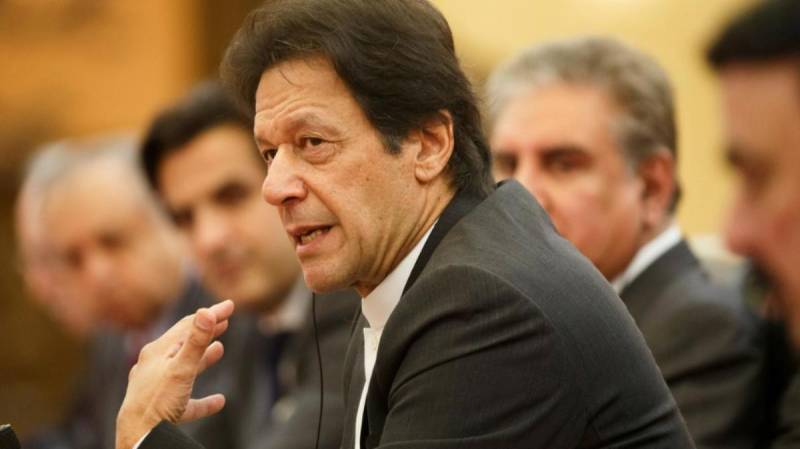Even before the outbreak of the Covid-19 pandemic the Imran Khan led Pakistan Tehrik-e-Insaf (PTI) government had been facing heat across multiple fronts. The most prominent among these being the financial plunge. And following the publication of the Federal Investigative Agency (FIA) report on the sugar and wheat crises, the government is believed to be facing an existential question.
Ironically, it might be the current Covid-19 outbreak – reacting late to which has also meant the government being castigated – might actually provide it some respite. For, with the country mirroring most of the rest of the world and largely coming to a standstill it has meant that any political reshuffle would have to wait as well.
But what prompted the talks of a change at the helm of the government, which have gradually become more tangible?
Until last year, economy was the sole bone of contention. The incumbent government has been accused of leaving it too late to go the International Monetary Fund (IMF), which granted a 13th bailout package to Pakistan in July last year. The delay meant the rupee depreciating swiftly to around 165 against the dollar. It recovered briefly after the IMF agreement, but has once again sunk to the same levels amid the coronavirus spread.
The faltering rupee translated into a decade high inflation. The State Bank then enhanced the interest rates to similar highs, taking it to 13.25, in turn discouraging local business activity. That interest rate was cashed in by overseas investors, bringing in the so called “hot money”, much of which has since left, once the central bank reduced the interest rates last month – in turn, pushing the rupee to the brink of 170 against the US dollar.
The sinking rupee, coupled with inflation had already ensured that prices for even the basic commodities skyrocketed. Then came the sugar and wheat crises of January.
By allowing a million tonne of sugar to be exported in October, despite recommendations not to do so given the predicted sugar production, the government created an artificial shortage, which pushed the sugar crisis, in turn allowing the manufacturers to benefit. The greatest beneficiaries have turned out to be PTI’s Jehangir Tareen and Khusro Bakhtiar along with Monis Elahi of the Pakistan Muslim League-Quaid (PML-Q).
While Bakhtiar has been shifted from the Food Security ministry to Economic Affairs, Tareen – who controls much of the PTI government – has already come out all guns blazing. In TV interviews he has downplayed the PTI’s rigging allegations regarding the 2013 elections, and even boasted how he brought influential political families of Punjab to help it win the 2018 elections.
Should the discord between Tareen and Khan become any bigger, the sugar magnate would take with him much of the electables and allies like the PML-Q which helped the PTI form government. Not to mention a whole lot of the financing.
Meanwhile, the PTI’s internal rifts come amid reports that it has also grown out of favour with the establishment. The two largest political parties, the Pakistan Muslim League-Nawaz (PML-N), and the Pakistan People’s Party (PPP), overwhelming backing the Army chief’s extension, along with PML-N supreme Nawaz Sharif being allowed to leave the country, is being interpreted by analysts as evidence that the PTI is no longer the blue-eyed party.
“The prime minister will need to make difficult decisions over the next couple of months. After Ramzan, the political situation will get fierce. The PM has been in charge for two years now, and he would now be aware of all governance related matters,” said Sheikh Rasheed, the chief of Awami Muslim League, the Railways Minister and an ally of the PTI.
Political analyst Suhail Warraich believes that if Imran Khan goes all out and takes action against his ministers and allies for their involvement in the sugar and wheat crises, he will have to deal with their backlash.
“They will continue to engage in politics, which will obviously be against the current government. [However] if the Prime Minister takes action against them, he will gain a lot of moral high-ground, which will get him a lot of political benefits, because it will reaffirm that with regards to corruption he doesn’t even spare his closest allies. This will quell questions regarding his governance,” he noted.
PTI leader and Punjab government spokesperson, Shahbaz Gill, however believes that the ruling party is still strong and given the transparency it has displayed in unveiling its own errors, it will go all out to punish those actually responsible for faulty institutions in the country: the opposition parties.
“The subsidy should not have been given, which is why the food minister lost his ministry. But such subsidies have been given for a long time now. The Sharif family during its rule has defied court orders to take their mills to South Punjab [and profit from them]. The government is going forward under the leadership of Imran Khan, and it will catch everyone,” he said.






